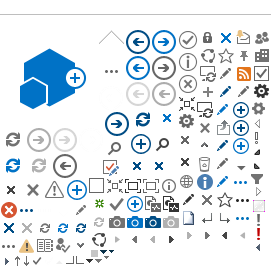Peer-Reviewed Journal Articles
Warren, G., Mosier, T.M., Sharp, K.V. and Hill, D.F. (2018), Small Hydropower Toolkit: Considerations for Improving Global Development and an Accompanying Case Study for Pakistan. University of Pittsburgh Law Review, 80, 137. DOI: 10.5195/lawreview.2018.595.
Alvarado, M.J., Winijkul, E., Adams-Selin, R., Hunt, E., Brodowski, C., Lonsdale, C.R., Shindell, D.T., Faluvegi, G., Kleiman, G., Mosier, T.M., and Kumar, K. (2018), Sources of Black Carbon Deposition to the Himalayan Glaciers in Current and Future Climates. Journal of Geophysical Research: Atmospheres. DOI: 10.1029/2018JD029049.
Mosier, T.M., Hill, D.F. and Sharp, K.V. (2017), Update to the Global Climate Data Package: Analysis of Empirical Bias Correction Methods in the Context of Producing Very High Resolution Climate Projections. International Journal of Climatology. DOI:10.1002/joc.5213.
Mosier, T.M., Hill, D.F. and Sharp, K.V. (2016), How Much Model Complexity is Just Right? Exploration Using the Conceptual Cryosphere Hydrology Framework. The Cryosphere, 10, 2147-2171. DOI:10.5194/tc-10-2147-2016.
Mosier, T.M., Sharp, K.V. and Hill, D.F. (2016), The Hydropower Potential Assessment Tool (HPAT):Evaluation of Run-of-River Potential for Any Global Land Area and Application to Falls Creek, Oregon,USA. Renewable Energy, 97, 492503. DOI: 10.1016/j.renene.2016.06.002.
Cotton, J.M., Cerling, T.E., Hoppe, K.A., Mosier, T.M. and Still, C.J. (2016), Climate CO2 and the History of C3 and C4 Vegetation from the Last Glacial Maximum. Science Advances, 2(3), e1501346.DOI: 10.1126/sciadv.1501346.
Mosier, T.M., Hill, D.F. and Sharp, K.V. (2013), 30-Arcsecond Monthly Climate Surfaces with Global Land Coverage. International Journal of Climatology. DOI: 10.1002/joc.3829.
Conference Proceedings
Agrawal, U., O'Brien, J., Somani, A., Mosier, T.M., and Dagle, J. (2020; accepted), A Study of the Impact of Reduced Inertia in Power Systems. Hawaii International Conference on System Science, University of Hawaii.
Alam, S.M., Panwar, M., Mosier, T.M., Shah, S., Gevorgian, V., Chen, B., Mahalik, M., Koritarov, V.,
Thant, A., Jenkins, S., Boorman, S. (2019), Integrated Run-of-river Plants with Energy Storage Systems:
Demonstrating Hydropower Black Starts on the Distribution Grid. HydroVision International, Pennwell
Corporation.
Mosier, T.M., Warren, G., Sharp, K.V. and Hill, D.F. (2017), Siting Run-of-River Hydropower Infrastructure in an Uncertain Climate: Assessing Changes Using the Hydropower Potential Assessment Tool(HPAT). HydroVision International, Pennwell Corporation.
Mosier, T.M., Sharp, K.V., and Hill, D.F. (2012), Development of a Water Runo Model for Pakistan:a Tool for Identifying and Assessing Micro-Hydro Sites. Global Humanitarian Technology Conference,Institute of Electrical and Electronics Engineers, pg. 166-171. DOI: 10.1109/ghtc.2012.35

